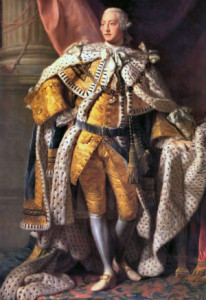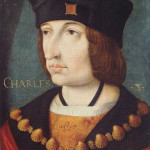History Of (Allegedly) Mad Monarchs: Part 2
Mad Monarchs Part II
Following the previous (see here for 1st part) article about allegedly mad monarchs, here is the second part of our history of some notorious mad monarch.
1. Alfonso VI, King of Portugal was known as “The Glutton”. When he was three years old, he became very ill. The result left him paralyzed on the left side of his body. It also left him mentally unstable. His mental instability and paralysis, plus his lack of interest in government, left his mother as regent Queen for six years. In 1662, he took the throne. He completed several important military operations, but soon his mental faculties failed him. In 1668, Afonso was exiled to the island of Terceira in the Azores for seven years. He returned to Portugal shortly before his death in 1683.
2. King George III was a busy ruler. He was King of Great Britain and King of Ireland from October 25, 1760 until the union of these two  countries began on January 1, 1801. He continued to rule as King of the United Kingdom of Great Britain and Ireland until his death in 1820. His monarchy was consumed in conflict from different fronts. His rule included the defeat of Napoleon at the Battle of Waterloo in 1815. It wasn’t until later in his life that he suffered from extreme mental incapacity and spent his last decade in a fog of insanity and blindness. His leadership helped shape the nations we are part of today and he played a huge role in history. It is disheartening to think that he will be remembered for his disability.
countries began on January 1, 1801. He continued to rule as King of the United Kingdom of Great Britain and Ireland until his death in 1820. His monarchy was consumed in conflict from different fronts. His rule included the defeat of Napoleon at the Battle of Waterloo in 1815. It wasn’t until later in his life that he suffered from extreme mental incapacity and spent his last decade in a fog of insanity and blindness. His leadership helped shape the nations we are part of today and he played a huge role in history. It is disheartening to think that he will be remembered for his disability.
3. Peter III reigned as Emperor of Russia for six months in 1762, but his reign yielded remarkable results. He came to Russia from Germany with his Aunt in 1742. At the time his other aunt, Elizabeth was Empress of Russia. At 14, he was declared King of Finland. At the time, Russian troops held Finland in the Russo-Swedish War. It Is believed that he suffered with great bouts of depression and was probably bipolar as well. It is believed that he was assassinated because of a conspiracy led by his German wife Princess Sophie Friederike Auguste von Anhalt-Zerbst-Dornburg, who succeeded him to the throne as Catherine II(Catherine the Great).
4. Ludwig II of Bavaria, older brother to King Otto, was known as “The Swan King”. In June of 1886, the Bavarian cabinet declared King Ludwig II unable to rule and appointed his uncle Luitpold to rule as Prince. King Ludwig died three days later, under unexplained and suspicious circumstances. This forced Otto to become the ruler. He took the throne In June 1886. He was unable to be an effective ruler. The explanation to his subjects was that the King is suffering from melancholy.
5. Otto Wilhelm Luitpold Adalbert Waldemar von Wittelsbach, was the full name of the Otto, King of Bavaria. He ruled from 1886 to 1913. His parentage was Maximillian II and Marie of Prussia. He was the younger brother of Ludwig II who also served as King of Bavaria. (There is another King Otto. He was King of Greece. The two often get confused). King Otto of Greece was his uncle and godfather. Disturbing signs of mental impairment began appearing in 1865. His condition rapidly deteriorated after the Franco-Prussian War. In 1871, King Otto began to isolate himself and avoided contact with strangers. He was placed under a doctor’s care and supervision. His was officially declared mentally ill in 1872 and kept in isolation in one of the unused palaces near Munich. Both Otto and his brother Ludwig II was reported to be depressed or mentally ill. At the time, psychiatry was still in its infancy. The diagnosis was based on statements made by third parties from whom the first psychiatrists formed vague clinical pictures.
There’s More Where That Came From
It is hard to believe but there are even more rumored stories about unstable anarchy. Whether they are mad monarchs or crazy kings, there are certainly some skeletons in the closets of some of the aristocrats of their times. “Power corrupts; absolute power corrupts absolutely,” said John Emerich Edward Dalberg Acton, first Baron Acton (1834–1902). Could this mean it corrupts the mind as well as persons’ actions? Possibly…







